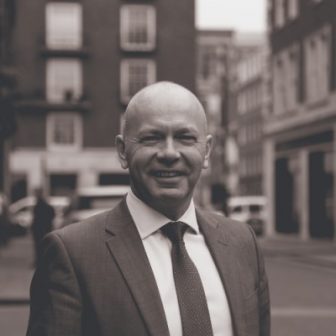In August, average residential property prices in the UK increased by an average of 1.5% compared with the previous month and 2.8% year-on-year to £292,924, the latest government data has revealed.
The Office for National Statistics’ (ONS’) house price index for the month found this was higher than the 1.8% annual growth witnessed in the 12 months to July, and put average the average price of a property £8,000 higher than 12 months earlier.
Across England, average residential property came to £309,572 in August, 2.3% higher than the corresponding month in 2023 and 1.6% up on the previous month.
Of the English regions, annual house price inflation was highest in the North West, where there was a 4.6% jump to £225,248.
In England, the lowest house price inflation in August was seen in the South West, where there was a 0.8% annual rise to £320,774. The region also recorded the only monthly decline in house prices, with a 0.3% drop.
Yorkshire and the Humber reported the strongest monthly increase in house prices in England, with a 2.7% increase to £219,433. Annually, house prices in this region increased by 4.4%.
Northern Ireland saw the strongest increase in house prices, rising by 6.4% year-on-year and 3.6% quarter-on-quarter to £185,025.
Wales reported a 3.5% uplift to £222,925, which was also 2.6% higher than the previous month. In Scotland, values rose by 5.4% yearly to 5.4% yearly to £199,971, which was 1.2% up on July.
Industry reaction:
Emily Williams, director of research at Savills, commented: “The pace of UK house price growth picked up in August. Annual growth is now at 2.8%, with the growth between July and August reaching 1.5%, the second-highest monthly figure recorded in the last two years. The market has been boosted over the summer by easing mortgage costs, and increased certainty in the aftermath of the General Election.”
Nick Leeming, chairman of Jackson-Stops, said: “The figures show an enduring strength from the market. Despite the Bank of England holding rates before the chancellor makes her address at the end of the month, there continues to be opportunities within the market for committed, savvy buyers.
“With demand for quality homes in sought after hotspots still strong, sellers are able to benefit from robust property values. This reality remains in part due to the supply and demand imbalance that Labour will be looking to address in the coming weeks and months.”
Ed Phillips, CEO of Lomond, commented: “A sixth consecutive month of positive house price growth demonstrates that the UK property market is very much heading in the right direction, boosted by a growing level of buyer confidence and an increased willingness to transact. Whilst interest rates remain a factor, we’re likely to see further cuts before the year is out and this will only strengthen the momentum that has been building across the market in 2024.”
Marc von Grundherr, director of Benham and Reeves, remarked: “Summer may have come and gone, but the green shoots of increased buyer activity that have been sprouting for much of the year are now starting to blossom into robust transaction volumes and consistently positive rates of house price growth. Whilst we’re unlikely to see any sales market incentives delivered in this month’s Autumn Statement, the housing market is likely to march on undeterred and we’re set for a very strong end to the year, despite the usual seasonal lull that comes with the Christmas period.”
Iain McKenzie, CEO of The Guild of Property Professionals, commented: “After a modest dip in house price growth last month, it is good news for sellers that the market is picking up once again.
“The property market has defied expectations once again, with prices rising 0.5% in August compared with July. This brings annual house price growth to 2.8%, significantly higher than many analysts predicted earlier this year.
“While the rate of growth has moderated from the double-digit increases we saw during the pandemic boom, the housing market is proving remarkably resilient in the face of higher interest rates and cost of living pressures. The average UK house price now stands at £293,000, up over £8,000 compared to this time last year.
“Affordability concerns and high interest rates – which are affecting the availability of competitive mortgage offers – are still holding back a full recovery of the sector.
“This is always a busy time of the year for estate agents. Buyers are often in a rush to sign on the dotted line so that they can complete and move in before Christmas. The increase in footfall should be enough to keep house prices stable for the rest of the year.”
Verona Frankish, CEO of Yopa, added: “August brought the first interest rate cut in over four years and it’s clear that this boost to buyer sentiment has had an almost immediate impact on the UK property market, with house prices rising notably throughout the month. Not only have we seen consistent improvements on a monthly basis, but this is the six month in a row that house prices have increased on an annual basis. This longer term metric is a far more reliable measure with respect to the returning health of the UK property market and bodes very well for the remainder of the year .”


